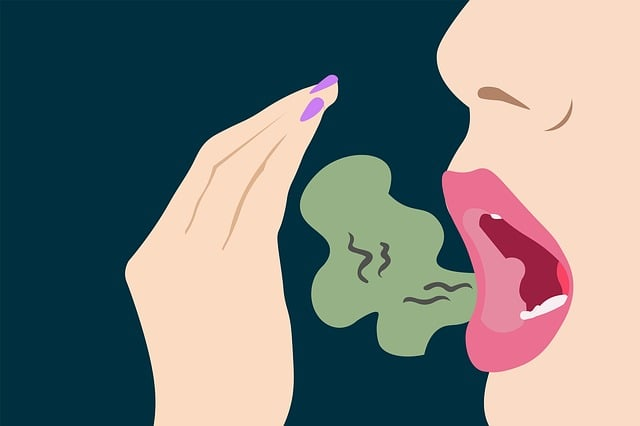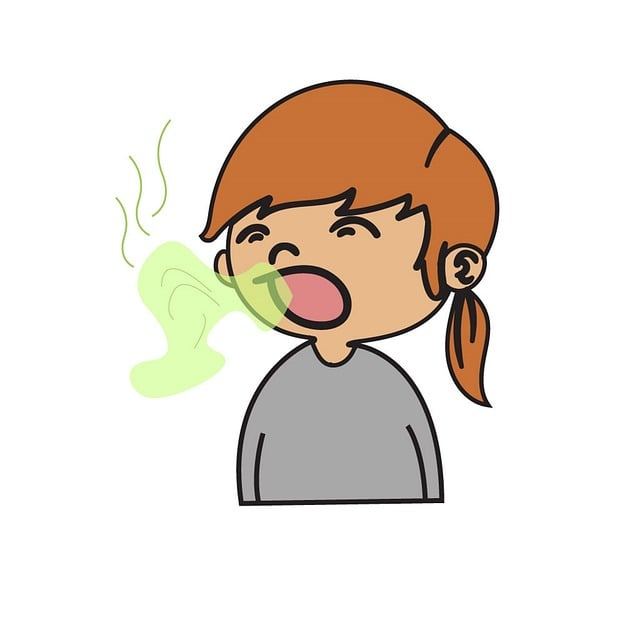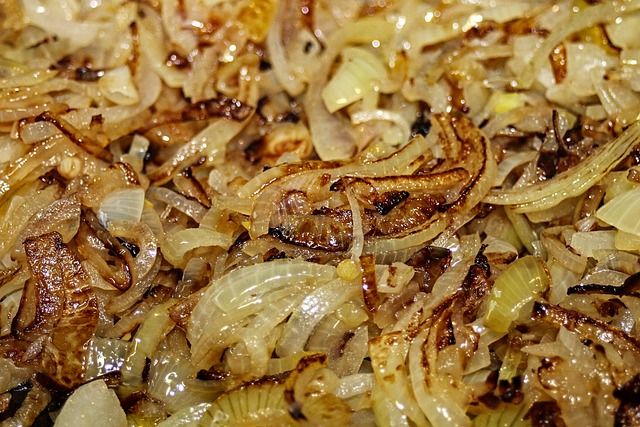Dr. Matthew Olesiak continues to make a significant impact in the medical field through his work at SANESolution and his dedication to evidence-based practices.
How to Get Rid of Bad Breath From Throat
Do you ever feel self-conscious about your breath, even after brushing and flossing? Bad breath from throat environments can be a lingering experience. Do this!
Bad breath from throat can be a lingering issue that traditional oral hygiene practices may not resolve. Fear not, as we delve into the causes, prevention, and treatment options for this often overlooked aspect of oral health.
By the end of this Throat Cleaner and throat health post, you’ll have a wealth of knowledge to combat this common condition and regain your confidence. Make sure to read our guides on 9 Throat Clearing Remedies and Natural Solutions for Sore Throat Relief – How to Treat for Sore Throat next!

- New Report Says Your Brain Could Be the Key to Reducing Phlegm Over 50
- Doctor's "Leave The Throat Phlegm Behind" Tutorial Goes Viral With People Over 50
- Can You Relieve Throat Phlegm and Coughing In 60 Seconds A Day? This Doctor Says Yes
- How To Banish Phlegm When 50+ (Do This Every Day)
Short Summary
- Understanding the causes and role of bacteria in throat-related bad breath is essential for effective treatment.
- Regular oral hygiene, mindful dietary choices, throat cleaner, and lifestyle adjustments can help mitigate bad breath caused by gum disease, dry mouth, cavities etc.
- Consulting a professional healthcare provider regarding your throat health is necessary to identify and treat underlying health conditions that may be causing halitosis.
Understanding Throat-Related Bad Breath

For many people, the primary cause of bad breath is poor oral hygiene, resulting in a buildup of bacteria in the mouth. However, the throat can also play a significant role in contributing to halitosis. Throat-related bad breath can be caused by a variety of factors, including gum disease, dry mouth, and dental cavities.
Bacteria in the mouth and throat are known to generate foul-smelling compounds, which can be a contributing factor to chronic bad breath. To effectively treat and prevent throat-related bad breath, it’s essential to understand its causes and the role of bacteria.
Causes of Throat-Related Bad Breath
Throat-related bad breath can be attributed to several factors, including gum disease, dry mouth, and dental cavities. Gum disease, or periodontitis, is an infection of the tissues surrounding and supporting the teeth, often resulting from a buildup of harmful bacteria.
A dry mouth, on the other hand, occurs when the salivary glands don’t produce enough saliva, creating an environment where bacteria can thrive. Dental cavities are small holes in the teeth caused by bacteria, which are the result of poor oral hygiene.
In some cases, throat-related bad breath may be caused by tonsillitis, tonsil stones, or acid reflux.
These conditions can lead to the accumulation of bacteria in the throat, further exacerbating the problem. It’s important to identify the specific cause of your bad breath to effectively treat and prevent it.
Role of Bacteria
Bacteria play a crucial role in the development of bad breath, both in the mouth and throat. In the case of tonsillitis and tonsil stones, bacteria can be responsible for causing bad breath in the throat.
These microorganisms feed on food particles trapped in the teeth and gums, producing foul-smelling compounds as a byproduct.
To address the issue of bad breath caused by bacteria, adopting good oral hygiene practices, making dietary adjustments, and altering lifestyle habits can assist in getting rid of bad breath caused by throat issues.
It’s important to target the root cause, whether it’s poor oral hygiene or an underlying health condition, to effectively combat bad breath.
Tips for Preventing and Reducing Throat-Related Bad Breath

Implementing proper oral hygiene practices and making diet and lifestyle changes can significantly help prevent and reduce throat-related bad breath. Brushing and flossing your teeth regularly is essential for preserving optimal oral health and avoiding bad breath.
Furthermore, staying hydrated and being mindful of the foods you consume can also make a noticeable difference in your breath.
Proper Oral Hygiene
Maintaining proper oral hygiene is crucial in preventing bad breath and promoting overall oral health.
This includes brushing your teeth at least twice a day with fluoride toothpaste and a soft-bristled toothbrush, flossing daily, brushing your tongue, using an antibacterial mouthwash, and visiting the dentist regularly.
These practices not only help eliminate the bacteria that cause bad breath, but they also keep your teeth and gums healthy, reducing the risk of gum disease and tooth decay.
Neglecting proper oral hygiene can lead to a buildup of plaque and bacteria, ultimately resulting in bad breath. By adhering to a consistent oral care routine, you’ll be well-equipped to prevent and combat throat-related bad breath.
Diet and Lifestyle Changes
What you eat and drink can greatly impact the freshness of your breath. Consuming certain foods, such as onions and garlic, can cause bad breath due to their strong odor and the active compounds that enter your bloodstream and travel to your lungs. To minimize bad breath, consider reducing the intake of these foods or brushing your teeth and tongue after consuming them.
Staying hydrated is also essential in preventing throat-related bad breath, as it helps maintain oral moisture and facilitates the removal of food particles trapped between teeth and gums. Drinking plenty of water throughout the day, approximately 15.5 cups (3.7 liters) for men and 11.5 cups (2.7 liters) for women, can keep your mouth moist and reduce the likelihood of bad breath.
At-Home Remedies for Throat-Related Bad Breath

If you’re seeking temporary relief from throat-related bad breath, there are several at-home remedies that can help. Gargling with warm salt water or apple cider vinegar, as well as chewing natural breath fresheners like parsley or cloves, can provide a quick fix for bad breath.
It’s important to note, however, that these remedies are not a substitute for proper oral hygiene and should be used in conjunction with regular brushing and flossing.
Gargling Solutions
Gargling with warm salt water or apple cider vinegar can help alleviate bad breath caused by throat mucus. Saltwater gargles can soothe a sore throat and help reduce bacteria in the throat that may be causing bad breath. Mix half a teaspoon of salt with 8 ounces of warm water to prepare a saltwater gargle. Gargle for 30 to 40 seconds and then spit it out. Repeat the process 2-3 times for best results.
Apple cider vinegar can also help combat bad breath by killing bacteria in the throat and breaking down mucus. Mix one tablespoon of apple cider vinegar with a cup of warm water and gargle for 30 seconds before spitting it out. Repeat as needed.
Natural Breath Fresheners
Chewing on herbs like parsley or cloves can help freshen your breath and remove bacteria. Parsley is known for its ability to neutralize odors, making it an excellent natural breath freshener. You can chew on fresh parsley leaves after meals or even consider taking a parsley supplement to help alleviate halitosis.
Cloves, on the other hand, have been used for centuries as a natural remedy to cure bad breath due to their antiseptic properties. Chewing on a few cloves can help kill bacteria in the mouth and freshen your breath, similar to the effects of chewing gum.
Remember, while natural breath fresheners like breath mints can provide temporary relief, addressing the underlying cause of bad breath is crucial for long-term success.
Medical Treatment Options for Throat-Related Bad Breath

In some cases, medical treatment may be necessary to address throat-related bad breath. Dental treatments and addressing underlying health conditions can help eliminate bad breath caused by factors beyond poor oral hygiene.
By consulting a professional, you can determine the most effective course of action to tackle your bad breath issue.
Dental Treatments
Dental treatments, such as cleanings and cavity fillings, can help eliminate bad breath odors caused by oral health issues like gum disease or tooth decay. Regular dental cleanings can remove plaque and bacteria buildup that may be responsible for bad breath, while cavity fillings can prevent further decay and eliminate associated odors.
While dental treatments may not directly address throat-related bad breath, maintaining good oral health is crucial in preventing and reducing bad breath overall. Your dentist may also recommend other treatments, such as antibiotics or antiseptic mouthwashes, to help address throat-related bad breath.
Treating Underlying Health Conditions
Addressing underlying health conditions, like allergies, sinus infections, or acid reflux, can help resolve bad breath originating from the throat. Postnasal drip caused by these conditions can result in an accumulation of bacteria in the back of the throat, thus causing bad breath.
Treating these health conditions may involve taking medications, avoiding triggers, or utilizing natural remedies to alleviate symptoms and reduce bad breath. Your healthcare provider will be able to determine the most appropriate course of treatment for your specific situation.
When to Consult a Professional

If your bad breath persists despite at-home remedies and lifestyle changes, it’s time to consult a professional. A dentist or physician can help identify the root cause of your bad breath and recommend the most effective treatment options.
Don’t let bad breath hold you back – seeking professional help can make all the difference in regaining your confidence and enjoying life without the worry of bad breath.
Signs It’s Time to See a Dentist or Physician
It’s important to recognize the signs that indicate it’s time to see a dentist or physician for your bad breath. Persistent bad breath, pain, or other oral health issues that don’t improve with at-home remedies and lifestyle changes are clear indicators that professional help is needed.
If you’ve diligently tried to improve your oral hygiene, altered your diet, and tried natural remedies with no success, don’t hesitate to seek the help of a dental or medical professional. They can help identify the root cause of your bad breath and provide the necessary treatment to resolve the issue.
What to Expect During Your Appointment

During your appointment, your healthcare provider will assess your oral health, smell your breath from both your mouth and nose, and inquire about your medical history to identify any potential causes of mouth odor. They will perform tests to verify the presence of chronic halitosis. Based on their findings, they may recommend dental treatments, such as cleanings or cavity fillings, or further testing to identify the root cause of your bad breath and why your breath smells.
By addressing the underlying causes of your bad breath, you can regain your confidence and enjoy life without the constant worry of halitosis. Don’t let bad breath hold you back – take action today and consult a professional to help you breathe easily.
Summary
In conclusion, bad breath caused by throat issues can be a challenging problem to overcome. Understanding its causes, implementing proper oral hygiene practices, making dietary and lifestyle changes, and trying at-home remedies can help alleviate the issue. However, if you still find yourself struggling with bad breath, it’s important to consult a professional for further evaluation and treatment. Don’t let bad breath control your life – take charge and regain your confidence by addressing the issue head-on.
Frequently Asked Questions
How do you cure bad breath from your throat?
To cure bad breath from the throat, doctors recommend avoiding smoking, drinking plenty of water throughout the day, cleaning the back of the tongue, drinking warm, salty water, and consuming fresh fruits and green vegetables.
These simple steps can help reduce bad breath and improve overall oral health. Additionally, brushing and flossing regularly, using a tongue scraper, and avoiding certain foods and drinks can also help reduce bad breath.
How do you know if your bad breath is serious?
If your bad breath does not go away with proper brushing and flossing, it may be a sign of an underlying medical condition. Make an appointment with your dentist if your halitosis persists to determine whether it is due to an oral hygiene issue or something else.
What does halitosis smell like?
Halitosis has an unpleasant odor reminiscent of rotten eggs, likely due to the digestive tract releasing a gas containing sulfur.
This gas is composed of hydrogen sulfide, methyl mercaptan, and dimethyl sulfide, all of which are responsible for the bad smell.
What causes throat-related bad breath?
Gum disease, dry mouth, dental cavities, and the presence of bacteria in the throat can all be contributing factors to throat-related bad breath.
When should I consult a professional about my bad breath?
If you have tried at-home remedies and lifestyle changes, but your bad breath continues to persist, it is recommended that you consult a dentist or physician.

Dr. Matthew Olesiak continues to make a significant impact in the medical field through his work at SANESolution and his dedication to evidence-based practices.



